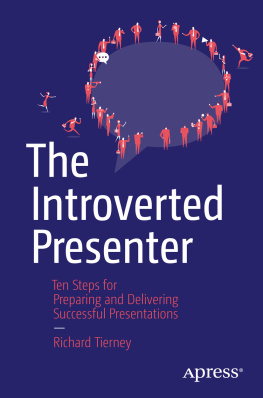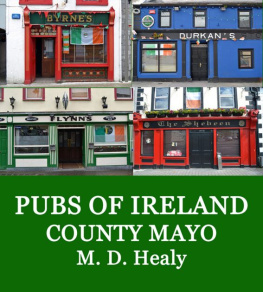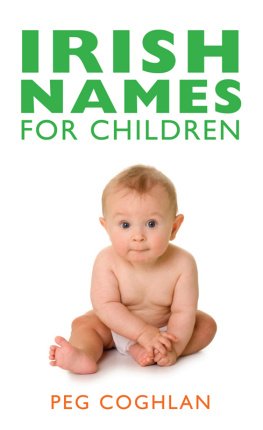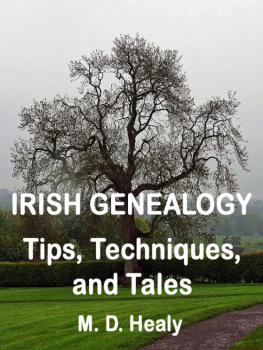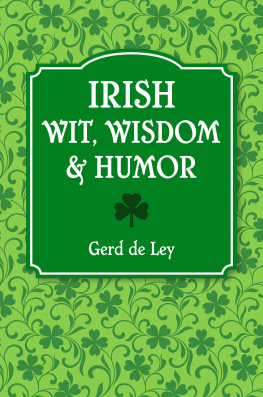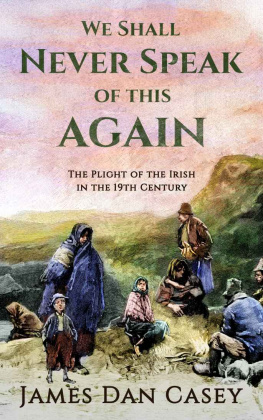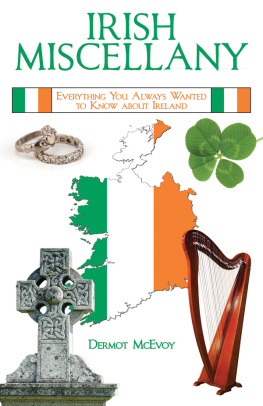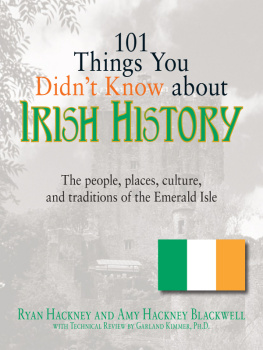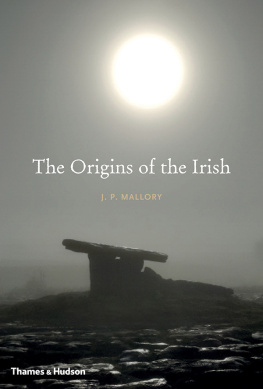
Text Copyright 2015 Rashers Tierney. Design Copyright 2015 Ulysses Press and its licensors. All rights reserved. Any unauthorized duplication in whole or in part or dissemination of this edition by any means (including but not limited to photocopying, electronic devices, digital versions, and the Internet) will be prosecuted to the fullest extent of the law.
Published by:
Ulysses Press
P.O. Box 3440
Berkeley, CA 94703
www.ulyssespress.com
ISBN: 978-1-61243-417-9
Library of Congress Control Number: 2014943020
10 9 8 7 6 5 4 3 2 1
Acquisitions Editor: Katherine Furman
Project Manager: Kelly Reed
Managing Editor: Claire Chun
Editor: Renee Rutledge
Proofreader: Lauren Harrison
Production: Jake Flaherty
Cover design: what!design @ whatweb.com
Cover images: from shutterstock.com clover serazetdinov; beer borsvelka; background texture secondcorner; harp Pim; border RedKoala
Interior images: from shutterstock.com chapter graphic tanik; section and folio graphics RAEVSKY; map JBOY
Distributed by Publishers Group West
Contents
From our fightin nature and inherent good luck to our potato eating and St. Patricks Day parading, the clichs regarding us Irish are famous. But our true awesomeness stems not from a few lame stereotypes; rather it can be found in the countless accomplishments for which were not given proper credit. That isuntil now! Serving up the truth like a perfect pint of Guinness, here are the fun and informative facts about the best feckin people in the worldthe Irish. Astonishing historical accounts. Profiles of Irish heroes. Stories of struggles and success. Language. Music. Culture. Weve got them all.
So get ready to push out your chest, proudly look the world in the eye, and say, F*ck you, Im Irish!

The Humble Spud of Life, Death, and Exodus
The potato is inextricably linked not only with the Irish diet, but with the whole of Irish culture and history. However, potatoes were rarely seen in Ireland before British explorer Sir Walter Raleigh popularized them on his lands in the 1580s. The potato proved remarkably easy to cultivate in Ireland and packed an extraordinary nutritional punch, complete with protein, vitamins, and complex carbohydrates. The Irish wholeheartedly adopted this new wonder food. The typical Irish peasant ate about 10 pounds of potatoes each day and soon towered in physical size over their rural English equivalents who mainly ate bread.
Infant mortality declined dramatically among the Irish. From 1780 to 1840, the population doubled, zooming from 4 million to 8 million. There was one flaw: As much as 60 percent of the Irish people were solely dependent on the humble spud as their main food source. Then came the devastating blighta malign misfortune that was to change the course of Ireland and the United States forever. This fast-growing fungus spurred mildew to form on all parts of the potato plant, causing entire fields to rot within days. To great dismay, the crops in 1845, 1846, and 1847 were decimated, leaving a vast quantity of the unfortunate Irish without any food or livelihood. This led to widespread death from starvation and disease, and mass exodus to the US.
It was a number of years before it was discovered that spraying the fields with a solution of copper sulfate effectively protected the potato crop. But by then, the horrific damage to the Irish population, economy, and culture had been done. Ireland would never fully recover from this dire catastrophe. Meanwhile, an ocean away, the US would grow and prosper like never before, thanks greatly to its new population of Irish immigrants.

Fighting Irish
Theres incredible fire in the Irish temperament. Whether its with a stinging verbal putdown or mean left hook, the Irish are not afraid to defend their homes, their families, and their rights. Just like Notre Dames feisty leprechaun mascot, Irish immigrants became known in the New World for a refusal to give up and simply take no for an answer. Banging away at the slammed doors of Anglo-Saxon Americas prejudice, this tough and fearless people kept tryingand fightinguntil they overcame injustice and intolerance. Be it in the rough-and-tumble world of inner-city politics or the bare-knuckle boxing ring, the Irish rightly earned their fightin moniker. These hard-as-nails immigrants werent bickering over a few pints of Guinness or who insulted whose granny, they were battling for respect, freedom, and prosperity in their adopted country.

The Luck of the Irish
Sure, youve heard all about the Irish and their amazing luck. Youve probably even bought lottery scratch cards festooned with shamrocks, leprechauns, rainbows, and pots of gold. Are the Irish any luckier than anybody else? Lets look at the evidence, shall we? Brutally oppressed by England, the Irish were forced to abandon their homeland in the millions, only to meet with poverty and No Irish Need Apply signs wherever they went. Mmm, the Irish variant of good fortune usually seems to be defined by down on their luck. The concept of the Irish being blessed in any way could potentially be viewed as the cruelest joke ever.
Still, there is a certain Irish cussedness and willingness to take wild and crazy chances that may end up leading to lots of good fortune. And then theres the distinctive Irish exuberance and willingness to celebrate any incidence of random windfall. Maybe thats why everybody regarded the Irish as lucky. Anytime something did go right, they were up drinking and carrying on until the break of dawn.
So, maybe, we Irish are just more inclined to celebrate and share our good luck with all who are around when it occurs. Just hope youre lucky enough to be there the next time one of us hits it big.

St. Patricks Day
The Sober Version
Before you start rubbing your hands in glee, anticipating riotous escapades involving dozens of cute colleens with skimpy green tops, glittery face paint, and barrels of green beer, know that St. Patricks Day in Ireland was traditionally a quiet, church-oriented affair.
The typical Irish family would rise early and find a solitary sprig of shamrock to put on their somber Sunday best. Then theyd spend the morning in church listening to sermons of how thankful they should be that St. Patrick saved a bunch of ungrateful sinners. Nobody wore green, as it was considered an unlucky color not suitable for church. Fun stuff, eh? It gets better Rather than spending the rest of the day gallivanting around the town square tossing green beads and asking complete strangers to smooch under the shamrocks, there was a quiet, sober parade promoting responsibility and community values, with no drunken shenanigans whatsoever. You see, St. Patricks Day, Good Friday, and Christmas Day were the three days of the year when the pubs werent allowed to open. Yep, you heard it right folks, the towns and villages of Ireland were dry as a rock in the desert on Irelands national feast day. People generally just gathered for a hearty family meal somewhat like the US Thanksgiving feast, annoyed the hell out of each other, and had an early night.
Next page


